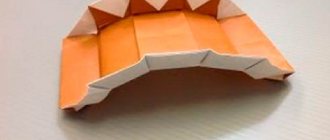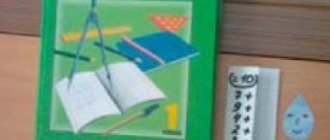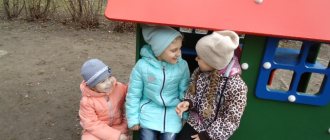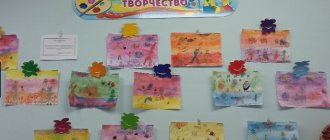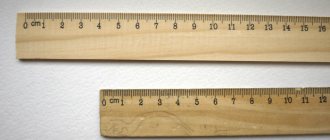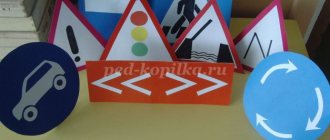Preparatory group. Senior preschool age. Children 6-7 years old
Notes on FEMP using the author's manual "Voskobovich's Games" with children of the preparatory group "Composition of the number 10" Notes on FEMP using the author's manual " Voskobovich's Games "
with children of the preparatory group.
Full name of teacher: Chernyshova O.V. Preschool educational institution: MBDOU "Khomutovsky kindergarten"
Program objectives: 1. Introduce the
composition of the number 10 from units . 2. Continue learning to find the previous number ...
Summary of the game situation for FEMP “Recognize the hero of the fairy tale. Composition of the number 10 from units" (preparatory group) Municipal budgetary preschool educational institution "Kindergarten No. 137"
Summary of a game situation on the formation of elementary mathematical concepts in children Topic:
“Get to know the hero of a fairy tale”
preparatory group Nizhny Novgorod region, Dzerzhinsk 2021...
When to start studying the composition of numbers
The most suitable age for immersing yourself in the topic of number composition is 6 years old, the time of preparation for school. But in some cases, it is appropriate to start studying the composition of small numbers earlier. It all depends on the individual characteristics of the child and the base that he already owns, namely:
- mental counting skill (in other words, you need to be able to assign a serial number to any objects);
- mental counting skill in reverse order;
- knowledge of the graphic image of numbers (remember how they look visually and are easy to recognize);
- An advantage is the ability to write down the number yourself.
You should move on to mastering the composition of numbers after consolidating the above skills in order to avoid difficulties and misunderstandings. This means you need to start by learning the numbers from 1 to 10.
Activities with number cards
Number cards are pictures where the number of objects corresponds to a certain number.
It is with these cards that it is best to start getting acquainted with the composition of numbers, because this method is visual and more accessible. Here is an example of such cards:
First, you should explain to your child what addition is: adding another to one number, we get a third number. This is best demonstrated on small objects (candies, buttons, pebbles, pencils, etc.) or cards: for example, on one there are 2 bananas, and on the other 3 oranges. If you add them together, how many fruits do you get? The child counts all the fruits and names the amount. At the same time, he gradually remembers how much it will be if you add up certain numbers.
Once you have an understanding of the process of adding different objects, you can take on the composition of a number. The adult names the number of items that should be obtained in the end, and together with the child they collect different combinations. It is better to start with small numbers and gradually increase.
For example, you need to collect 4 apples. We offer the child a card with only 1 apple drawn and ask which one else needs to be chosen so that there are 4 apples in the end. Then we take a card with a picture of 2 apples and ask the same question. Thus, all possible combinations are tried.
Gradually you can move on to larger numbers, where the number of combinations will increase. With repeated repetition, the composition of each number is stored in memory and then reproduced mechanically.
Number houses
Houses with numbers are the next step in learning the composition of numbers. They are a building with a roof and two apartments on each floor. There is always a number on the roof that splits into two others that live next door to each other. The number of floors depends on the number of possible combinations: the higher the number, the more options for laying it out and the higher the house.
To understand the composition of a number with your child, just draw such a house. For example, for the number 3 it will have 2 floors, on which 0 with 3 and 1 with 2 are adjacent
Having explained the main principle, you need to give children the opportunity to fill out the number houses on their own: leave them empty and indicate only the number on the roof, the composition of which must be distributed among the floors. You can start from the bottom floor or from the top.
If the task is difficult, you can fill in some of the boxes as a hint. But in the future it should be explained that each number, moving from one floor to another, becomes 1 more or less. And if in one apartment there is a decrease of 1, then in the next one there will be an increase of 1.
After the compositions of numbers up to 10 have been mastered, you can move on to the second ten, if the child is familiar with it.

